Researchers
WSU Core Members
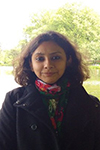
Dr Rimple Mehta
Director of Diversity and Creative Social Change Strand,
Lecturer In Social Work and Community Welfare
Dr Rimple Mehta has previously worked at the School of Social Work, Tata Institute for Social Sciences, Mumbai and School of Women's Studies, Jadavpur University, Kolkata. She has studied Sociology, Social Work and Women’s Studies. Her doctoral work centered around the experiences of Bangladeshi women in Correctional Homes in Kolkata, India. She was a recipient of the Ryoichi Sasakawa Young Leaders Fellowship Fund (SYLFF) for the same at Jadavpur University. Her research and field engagements broadly focus on women prisoners, refugee women, and human trafficking. She engages with questions of borders, citizenship and criminology of mobility. She adopts an intersectional feminist perspective with a strong emphasis on questions of epistemology, therefore viewing ‘reality’ from intersecting positions of marginality. Her paper titled "So Many Ways to Love You/Self: Negotiating Love in a Prison" won the 2013 Enloe Award and was published in the International Journal of Feminist Politics. Her monograph titled "Women, Mobility and Incarceration: Love and Recasting of Self across the Bangladesh-India Border" was published by Routledge in 2018. She has worked with women prisoners in Mumbai, Kolkata and The Netherlands and with organisations such as Swayam and networks such as Maitree against violence on women in West Bengal.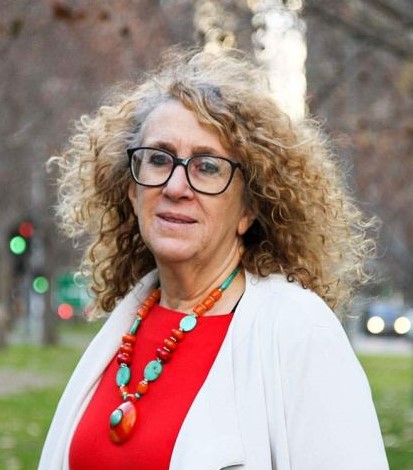
Professor Linda Briskman
Margaret Whitlam Chair of Social Work,
Professor in Social Work & Community Welfare
Linda Briskman is an experienced academic and human rights social worker. She began her social work career in the field of child and family welfare. Her fields of expertise are Indigenous rights; asylum seekers/ refugees; and racism, particularly Islamophobia. She conducts research and publishes across these three areas in Australia and internationally. Recent books include: Social Work in the Shadow of the Law (co-edited with Simon Rice and Andrew Day 2018) and Social Work with Indigenous Communities: A human rights approach (2014). She is currently a CI on an NHMRC project, Rainbow Knowledge, with Western A/Professor Karen Soldatic and a Western Australian team, and a member of a three-university project on Children of Islamophobia. Previous appointments include Professor of Human Rights at Swinburne University of Technology and Dr Haruhisa Handa Chair of Human Rights Education at Curtin University.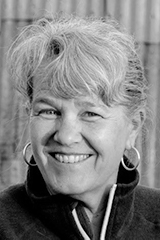
Professor Debbie Horsfall
Professor in Sociology
Debbie is a passionate leader in the field of inclusive, democratic and creative qualitative research in health, human services and community development. Her transformative agenda privileges people’s voices during a myriad of challenging life events. This has led to her participation in numerous engaged research projects including work with: Cancer Council NSW; Multicultural Health; The Department of Ageing, Disability and Home Care; Women’s Housing Services; the Prime Ministers Youth Action Task Force, The Groundswell Project; and the Benevolent Society. Debbie has been awarded the Vice Chancellors Award for Excellence in Postgraduate Training and Supervision, many of the candidates were trailblazers in arts based and creative research methodologies and re-presentations. She is a post graduate examiner at national and international levels and has successfully supervised over 38 research candidates. Debbie pioneered the use of photo voice in research with carers at end of life and with people living with significant mental health issues. As a result of her extensive scholarly work in the area of creative, community development and practice based research she has served on several editorial boards, written, co-edited and contributed to over 50 publications including 4 scholarly research books, and is continually approached as a reviewer across disciplinary fields. Her funded research work in the end of life area has included researching socio-cultural influences on older CALD carer’s decisions in end of life care and working with informal carers and service providers to explore how caring at end of life develops death literacy, health promoting palliative care, creative partnerships and compassionate communities. Currently she is working on developing the world’s first death literacy index; developing a community development model for aged care services to work against social isolation for elderly residents and the development of compassionate communities in Australia.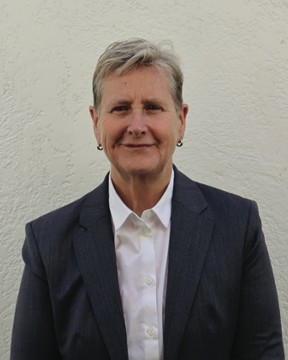
Professor Kerry Robinson
Acting Director, Human Rights & Diversity Research Centre
Lecturer in Gender and Sexuality
Professor Kerry Robinson is in the School of Social Sciences (SoSS) and is the Director of the Diversity and Human Rights Research Centre. Kerry is also a member and former leader of Sexualities & Genders Research (SaGR). Her research interests focus on a broad range of intersecting areas including: gender and sexuality studies; LGBTQ issues; diversity and difference in educational contexts; gender equity; gender and sexuality based violence and sexual harassment; gender and sexuality diversity and young people; sexual citizenship; sexuality education; feminist theory, queer theory and feminist post-structural theory.
Professor Robinson is located in Sociology and Anthropology in the SoSS, lecturing in Gender and sexuality.
Kerry is the recipient of a Carrick Institute for Learning and Teaching in Higher Education Citation for Outstanding Contributions to Student Learning Award for her innovative curriculum and transformative pedagogies that inspire and motivate students to learn, and scholarly research that enhances learning and teaching. She also received a NSW Minister for Education and Training & The Australian College of Educators Quality Teaching Award; a UWS Vice Chancellor’s Teaching Excellence Award; and a UWS College of Arts Citation Award for Outstanding Contributions to Student Learning. Professor Robinson was a co-recipient of a WSU Vice Chancellor's Excellence in Reseach Award in 2016.
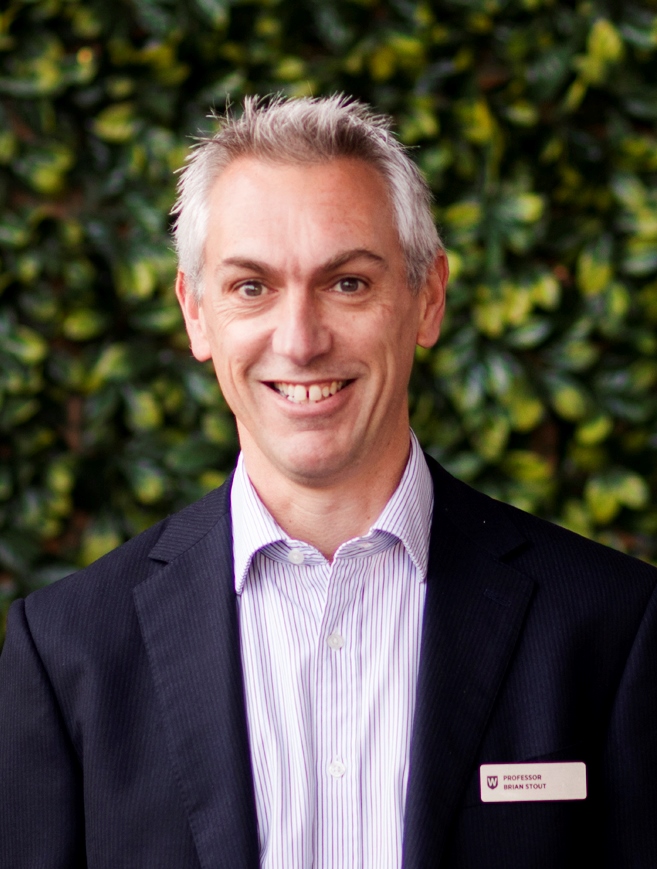
Professor Brian Stout
Pro Vice-Chancellor, HASS Cluster,
Dean, School of Social Sciences,
Provost, Liverpool Campus
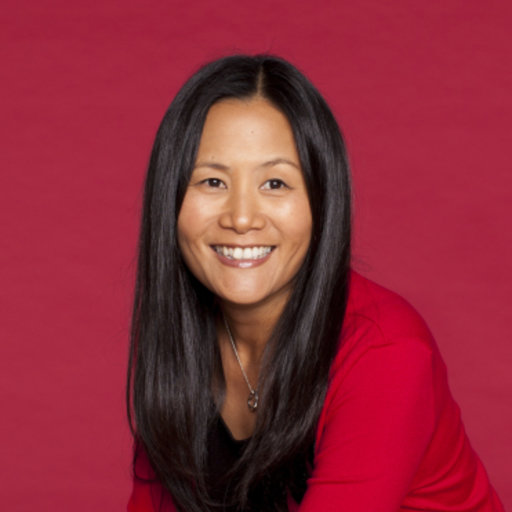
Associate Professor Nida Denson
Associate Professor in Sociology
Nida Denson is a Senior Research Fellow and ARC Postdoctoral Fellow. She received her PhD in 2007 from the University of California Los Angeles (UCLA) while she worked as a researcher at the Higher Education Research Institute (HERI), one of America's oldest and largest higher education research institutes. Her research focuses on the impact of diversity at multiple levels. At the individual level, she examines the positive benefits of engagement with diversity-related activities such as programmatic efforts that expose students to diversity and contact with diverse peers. At the group level (e.g., classroom, university), she examines the unique effects of being in a diverse educational context. Her research also aims to identify the cognitive processes through which the benefits of diversity occur, and the individual and situational factors that maximise the benefits of diversity on social and cognitive development.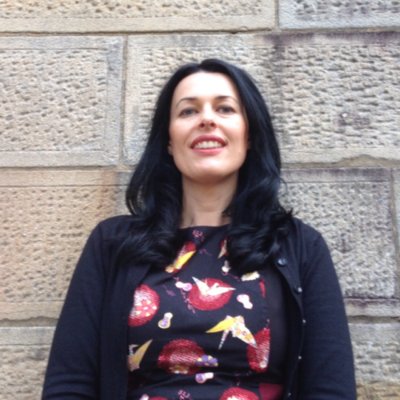
Associate Professor Gabrielle Drake
Associate Dean (Engagement), School of Social Sciences
Dr Gabrielle Drake is a recognised expert in the areas of social policy, mental health and disability, and homelessness and housing pathways. Gabrielle’s research interests include social work practice in mental health; disability; boarding houses; housing and homelessness pathways; consumer and carer voices in social work education; and inclusive and emancipatory research.
Gabrielle has twenty years practice experience spanning a variety of roles and practice settings including community and public sector management, strategic policy and reform, research, teaching in graduate and postgraduate social work programs, direct practice, and oversight.

Associate Professor Sheridan Linnell
Discipline Leader, Art Therapy and Counselling, School of Social Sciences
Sheridan Linnell is Associate Professor of Art Therapy at Western Sydney University. She is interested in collaborative, arts-based and narrative approaches to therapy, teaching and research. Sheridan conducts and supports research-led teaching and practice-based research within a feminist, postructural and new materialist theoretical framework. Passionate about social justice, Sheridan is committed to working with others, including doctoral candidates, to question and reshape professional and therapeutic discourse, counter marginalisation and move beyond individualistic accounts of wellbeing. With a background in counselling, narrative therapy and community work practice as well as art psychotherapy, Sheridan has more than thirty years of field experience. Prior to teaching at UWS, she specialised in working therapeutically with the effects of violence, abuse and neglect on individuals and families, supervising and training other therapists and formulating new approaches to this area of work. Sheridan's doctoral and postdoctoral work conceptualises how the subjectivity of therapists is formed and performed within contemporary regimes that situate moral responsibility primarily with the individual. She has adapted narrative therapy and community work interview processes for the purposes of research and has critically evaluated the potential of this approach. Sheridan has further developed this methodology when conducting an arts-informed research project on the effects of risk discourse on the work of counsellors and art therapists; in a collaborative enquiry into the emerging themes of difference and diversity in arts therapies across the Asia-Pacific region; and currently within a UWS partnership project with her UWS colleague Debbie Horsfall and the community health organisation RichmondPRA. Sheridan's book Art therapy and narrative therapy: an account of practitioner research is an exploration of the theory/practice binary, supported by an autoethnographic account of working as a therapist. She is Co-Editor of the Australian and New Zealand Journal of Arts Therapy, a published poet and participates in collaborative art exhibitions and performances.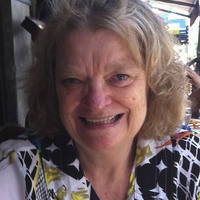
Associate Professor Jane Mears
Associate Professor of Social Work & Community Welfare
Jane Mears is an Associate Professor in social policy. She has working as an academic, a teacher, community activist and advocate for the past 40 years. She works on collaborative engaged action research projects with communities and government in the areas of women and caring, aged care and violence against older women.
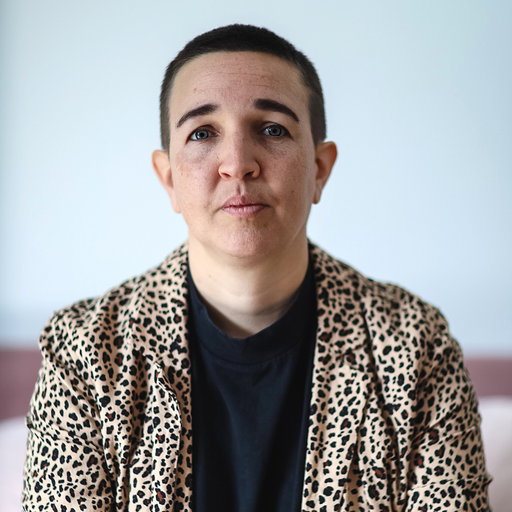
Associate Professor Lucy Nicholas
Director of Sexuality and Gender Research (SaGR)
Associate Professor in Gender and Sexuality Studies
Lucy is currently Associate Professor in Gender and Sexuality Studies at Western Sydney University specialising in gender and sexual diversities, social and political theory, queer theory, whiteness and feminisms. Her first book, Queer Post-Gender Ethics, was published in 2014 by Palgrave McMillan. Her second book, The Persistence of Global Masculinisms, co-authored with Dr Agius from Politics, was published in 2018. Lucy's PhD was awarded at University of Edinburgh where she worked before moving to University of Portsmouth and then to Australia, and was awarded an Australian Office of Learning and Teaching Citation for Outstanding Contributions to Student Learning in 2015.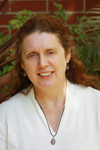
Dr Brenda Dobia
Senior Lecturer
Centre for Educational Research (soe)
Dr Brenda Dobia is a senior lecturer in the School of Education at Western Sydney University and a core member of its concentration in Social Ecology, where she specialises in education for sustainability, ecopsychology, community engagement and participatory research methods. She has received several teaching awards for her work in sustainability education and in curriculum design.
Dr Dobia has a professional background in Clinical Psychology, a PhD in Cultural Studies, and is an active researcher and research supervisor in school-based behaviour and wellbeing, violence prevention and sustainability education. She combines her expertise in psychology and cultural studies with a strong social justice agenda and an applied approach to research and teaching. Dr Dobia led resources development for KidsMatter, the Australian national primary schools mental health initiative, and undertook research into its ‘adaptation’ for Aboriginal and Torres Strait Islander students and families. She works collaboratively with schools, partner organisations and communities to develop and evaluate programs that can make a difference to the lives of young people through promoting wellbeing and preventing violence.
Dr Dobia is an active researcher and research supervisor in the areas of sustainability education, violence prevention and school and community-based wellbeing. She has a deep commitment to social justice and to decolonising practices, including through her collaborative and inter-disciplinary doctoral research into women’s empowerment in India. She also has a longstanding involvement in research and teaching for social justice and wellbeing, working in partnership with Australian First Nations communities.
Dr Dobia takes an applied transdisciplinary approach to her research and teaching. Her inter-cultural work has included the study of Indian philosophy, culture and traditional healing systems, as well as collaborative research with Indian colleagues. She has particular expertise in issues of gender and sustainability, community empowerment and cross-cultural knowledge translation.
Throughout her professional life Dr Dobia has worked on issues of gender equity and women’s empowerment. She has provided research expertise and community development consultancy to national domestic violence prevention and respectful relationships education programs. Recently she joined the Managing Aquifer Recharge and Sustaining Groundwater Use through Village-level Intervention (MARVI) research team, with a focus on enhancing aspects of gender equity in relation to groundwater use and management in rural India.
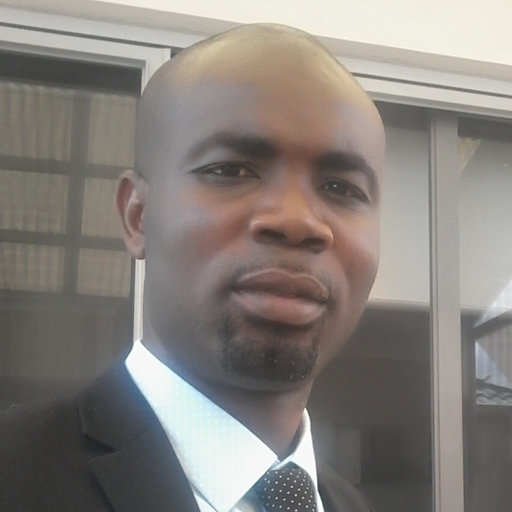
Dr Daniel Doh
Lecturer in Social Work
Daniel Doh (PhD) is a Lecturer in Social Work at the Western Sydney University. Prior to joining Western Sydney, Daniel worked as a Senior Research Officer for the Silver Chain Group – Access Care Network Australia in Western Australia. He was a Sessional Academic at the School of Arts and Humanities - Edith Cowan University, Perth and an Assistant Research Fellow at the Centre for Social Policy Studies, University of Ghana. Daniel is a social worker/social policy analysist, and has been involved in several impact evaluation programs and research activities for the Government of Ghana, UNICEF, HelpAge Ghana, Revenue Watch Institute -UK, Institute of Environment and Development – UK, Revenue Watch Institute – UK, and several not-for profit organisations in Ghana, Liberia and Sierra Leone. Daniel has been teaching impact evaluation, research method courses, and social policy analysis over the past 10 years at graduate levels and at various professional development workshops in Ghana, Kenya, Sierra Leone and Australia. Daniel’s expertise and interest are in theory-based mixed-method impact evaluation, with matched capacity for both quantitative modelling and qualitative analysis. Daniel’s current project is examining the impact of the introduction of a reablement strategy -an emerging global practice model for community and homebased care for older people in Australia and the impact of short-term medical missions in developing countries. Daniel’s future research project will be exploring the qualitative outcomes of reablement, informal dementia care arrangement for older Aboriginals in Australia, decolonising social work practice in different cultures including Africa, examining different models of promoting social interaction in old age, social protection systems in Africa and Asia Pacific, and the impact of short-term medical mission (STMM) in developing countries.
Dr Michel Edenborough
Lecturer in Social Work
Dr Michel Edenborough has a Bachelor of Arts degree (Humanities with distinction), and Social Science (Hons first class). Michel’s PhD was conferred in 2008, a mixed methods study titled Prevalence, experience and nature of child-to-mother violence in a high-risk geographical area. She is a Lecturer in the School of Social Sciences at Western Sydney University, teaching into the Social Work and Community Welfare programs. Michel shares unit coordination for Community and Social Acton and Family Violence Policy and Practice. Michel is adept in diverse research methodologies for quantitative and qualitative paradigms. She is an experienced Higher Degree Research supervisor and research mentor. Michel’s primary research interests focus on working with inclusive communities, promoting social change and social resilience; the role of digital technology, particularly for children and young people; refugees and asylum seekers; women and family violence.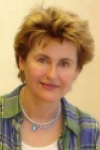
Dr Frances Gale
Senior Lecturer in Social Work & Community Welfare
Senior Lecturer in Social Work, School of Social Sciences, University of Western Sydney (teaching in the areas of Theory and Critique of Practice; Ideologies of Practice in Social Work; Adolescent Health and Development and Social Policy). From 1997- 1994 Associate Lecturer in Government Sydney University, teaching units in Australian Politics, Political Theory, Comparative Politics and Political Sociology. Recent and current research and practice includes youth and community development work in East Timor after the independence referendum; work with remote indigenous Australian young people and work with young asylum seekers in Australian Immigration Detention Centres as well as in the community.
Dr Emilee Gilbert
Senior Lecturer in Psychology
Emilee is an expert across a range of qualitative research methods, public health policies and practices, and the application of post-structural feminist theory to the analysis of issues surrounding gender, health and sexuality. Her research interests are gender and health, with a focus both on young women's experiences of cigarette smoking, and issues surrounding sexuality in the context of cancer, and more recently women's negotiation of paid and unpaid work. Emilee has contributed to the field of gender and health through the publication of research and theory papers examining sexual subjectivity in relation to health issues, and the examination of women's health in the context of health promotion. Emilee currently lectures in postgraduate research methods for the social sciences and psychology, having also lectured in genders and sexualities. Emilee has presented papers nationally and internationally which address areas including: cancer caring, cancer and sexuality, cigarette smoking as a gendered practice; and young women's resistance to anti-smoking campaigns, and has been significantly involved in media discussions and interviews, and professional service in the area of gender and health and public health policies.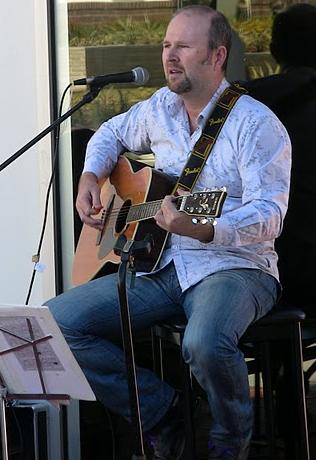
Dr Neil Hall
Director of Academic Programs & Senior Lecturer in Social Work and Community Welfare
Neil Hall is a Senior Lecturer in Social Work at WSU, specialising in group work. He worked as a social work practitioner in street work, adolescent health, drug and alcohol, sport, and as a sessional group work specialist in prisons and juvenile justice centres. He has a long history as a lead academic with the WSU based Men's Health Information & Resource Centre. In 2010, he completed his PhD on sport, civic engagement and young males, and continues to research the social determinants of men's and boy's health and wellbeing, particularly through engagement in sport, art and music.
Dr Michael Houlbrook
Lecturer in Social Work & Community Welfare
Mick Houlbrook has worked at Western since 2000 – teaching in adult education and social sciences (community services). As a former director for the Centre for Community Welfare Training, Mick was involved in the development of a graduate degree delivered in work-based mode, which formed a substantial part of his initial research at the university and led to his book The Politics of Work-based Learning.
In previous employment Mick has worked in several trade unions as an educator/organiser as well as Community Legal Centres, Dept. of Community Services (WA) and several schools in WA and the UK. He also has strong connections with the community sector through his previous work and activities as a political activist. He has also worked as a consultant to organisations including NSW Child Protection Council.
Mick describes his practice as informed by Critical Social Pedagogy – which is a form of learning centred in critical theory and social justice. He sees the aim of learning as a means of social transformation based on informed, participatory and democratic activity. Mick’s recent work and publications are focused on issues of recognition of high levels of experience for people who may not have formal qualifications and on accountability issues in the community sector.
In 2017 Mick developed an interest in Compassionate Pedagogy and the practice of kindness in higher educational settings. This has informed his most recent work on Compassionate Pedagogy as an act of resistance.

Dr Debra Keenahan
Lecturer in Humanitarian and Development Studies
Debra is an Artist, Psychologist and Human Rights Academic and Editor at Western Sydney University. Disability Aesthetics is her passion. She identifies as a woman with a disability. Debra's first PhD was in Psychology on the topic of Dehumanisation. As a psychologist in the field she has worked in the area of disability and in the Corrective Services. Since 1999 she has lectured on the subject of Inequality and Human Rights. Debra is currently completing my second PhD in Visual Arts focussing upon defining the Disability Aesthetic through the representation of the female dwarf.
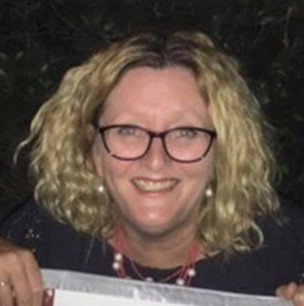
Dr Robyn North
Academic Course Advisor, Postgraduate Bridging Program, Social Work and Community Welfare
Doctor Robyn North is Academic Course Advisor for postgraduate Bridging Programs for Social Work and Community Welfare and Lecturer In Social Work at Western Sydney University.
Robyn coordinates and lectures in the Field Education 1 unit and Social Work and Social Policy unit.
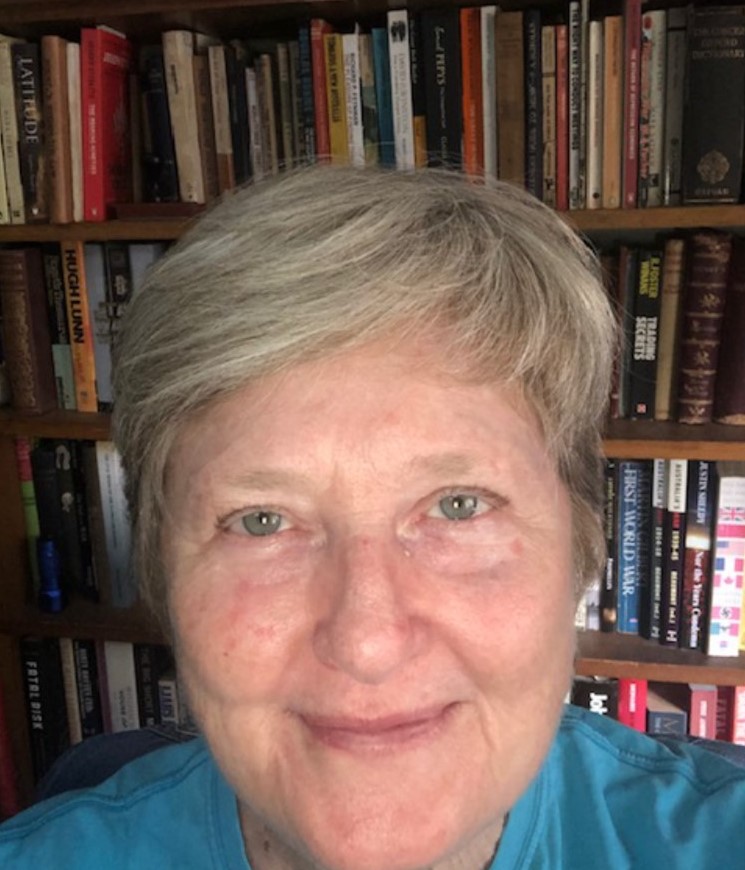
Dr Justine O'Sullivan
Academic Course Advisor, Social Work and Community Welfare
Lecturer in Social Work
Dr Justine O’Sullivan has extensive knowledge of professional practice gained from her years in the human services sector, including child protection and safety as well as being a counsellor in the fields of mental health and problematic substance use. Her career at Western Sydney University (WSU) in Field Education and teaching Social Work Fields of Practice skills has built on her work in this sector. O’Sullivan has an established reputation amongst her peers in Australian Social Work Field education. Her focus is on building University based integrated skills practice experience as an effective and high-quality educational pathway for ethical practice. O'Sullivan was part of an Australia-wide research collaboration with the university-based social work educator community resulting in the group's successful Australian Learning and Teaching Council grant and monograph A Guide to Supervision in Social Work Field Education, aimed at building practitioner capacity in supporting students to meet professional degree requirements. As an early career researcher O’Sullivan has been a co-researcher with Profs. Noble, Heycox and Bartlett, on a project identifying how structural issues operate in organisational contexts employing social workers (2007), and more recently with Prof. Mears on a project on access to tertiary education as a democratising social policy initiative during the Whitlam era. She is co-authoring with Prof. Mason and Fattore an article on practitioner reflexivity, in social work contexts where organisational policies challenge social justice informed values. To date O’Sullivan has supervised one HDR student to completion and is currently supervising two PhD students. From 1990 to the present day, O’Sullivan has supervised many professional social work placements, frequently teaching practice-based research skills as an important premise to lifelong professional practice.
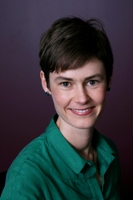
Dr Gerda Roelvink
Senior Lecturer in Geography and Urban Studies
Her research expertise is in the field of diverse economies, focusing in particular on collective action and economic transformation.

Dr Hong-Jae Park
Academic Course Advisor - Master of Social Work
Senior Lecturer in Social Work
Dr Hong-Jae Park is a Senior Lecturer with the School of Social Sciences, Western Sydney University, Australia.
Dr Park is a native of the Republic of Korea who received both his Master of Social Work (Applied) and Doctor of Philosophy degrees from the University of Canterbury, New Zealand. In January 2017, he has joined Western Sydney University after his seven years’ service at the University of Auckland. His teaching focus has been on the advancement of the Master of Social Work (Qualifying) program, enhancing its curriculum and pedagogy, as he has taught a range of undergraduate and postgraduate courses in social work and human services.
Dr Park has maintained a long-standing interest in future-oriented filial piety (intergenerational solidarity) and has conducted research projects on ‘social lifespan’ after death, elder abuse and neglect, and whakapapa and filiality. He also has a distinct research agenda on later-life migration, addressing social isolation and loneliness among older people living in a foreign land, and leads this agenda within social work research and practice in the Asia-Pacific region and beyond. He has published 20 peer-reviewed articles/reports, 8 book chapters and a co-edited book during the last five years.
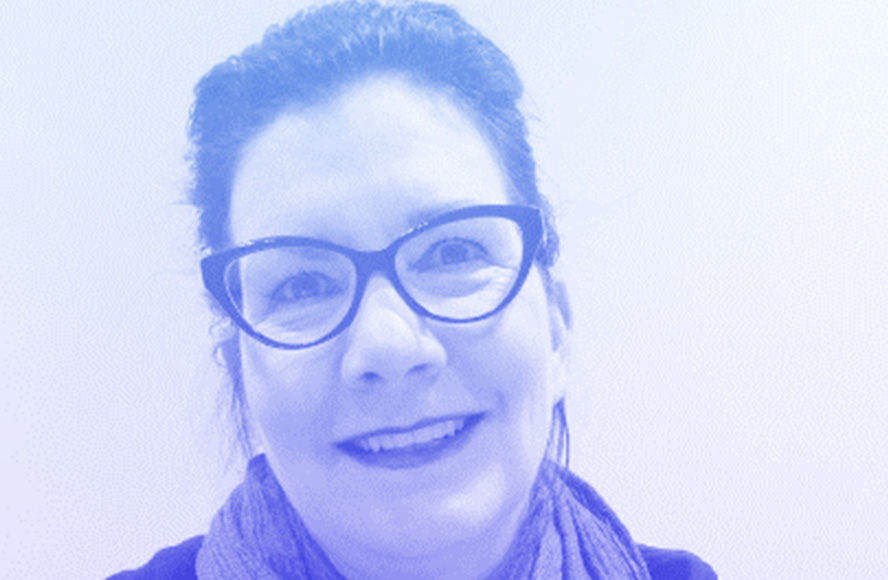
Dr Susan Sisko
Lecturer in Counselling
Dr Susan Sisko is a lecture in Counselling at Western Sydney University, she is a member of the Australian College of Applied Psychology (ACAP) Melbourne. Susan studied in the USA and Australia; practised and taught in Hong Kong, Melbourne and several American cities.
Susan has significant expertise in mindfulness, pop culture, LGBTQ, gender roles, cultural diversity and humour.
Susan has been interested in interpersonal neurobiology. This interdisciplinary field seeks to understand the mind and mental health. Susan thinks it would be fascinating to understand more about what happens to the mind under stress, when relaxed, when traumatised and how this affects an individual’s emotional, and behaviour well-being.
Unlike any other time in history, we are so fortunate with science and technology to better understand the mind and how it functions, however, there is less understanding about the impact of how counsellors and psychologists might integrate this knowledge into practice.
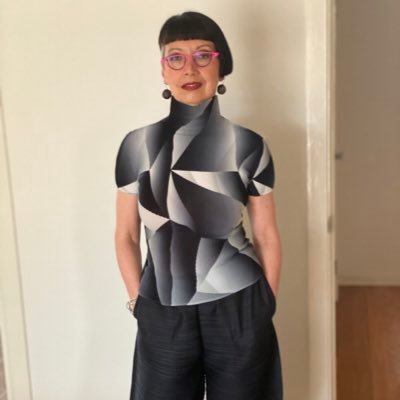
Dr Sonia Tascon
Academic Course Advisor - Social Work & Community Welfare
Senior Lecturer in Social Work
Dr Sonia Tason is a Senior Lecturer in Social Work. She has research interests in human rights films, activist film festivals, visual communication, race relations.Sonia has been an academic in the fields of human rights, migration, refugees, and ethics for over a decade now, but an activist in those fields for much longer. She has worked in many Australian universities as lecturer and guest lecturer in fields as diverse as human rights theory, media theory, social policy, gender, and community development. What unifies all of these diverse interests has been a commitment to contributing towards a world in which no human being is excluded or uncared for. Many of her earlier publications centred on refugees as they represent the most problematic figure in modern times because of their status as 'border-crosser'. This border, is not only premised on national barriers, but also configured significantly by race, and so much of her earlier work turned to these considerations as well. Because of those interests Sonia travelled to Columbia University in 2004 and was Visiting Scholar at the Center for the Study of Race, and the Center for the Study of Human Rights.
In recent times Sonia has become more focused on the need to create a culture of human rights in order to achieve this aim of inclusivity. She turned to the study of films as a productive means to further this, primarily because our lives are now so dominated by visual images: we may as well garner them for the good of humanity. Her interest has turned to an understanding of how films can be used to activate us, how they story us and our world so that we are moved to act: for ourselves and others, so we all may share a more equitable world. This led her to study two human rights film festivals, one in Buenos Aires and the other in New York, her analysis and conclusions now a book about to be published by Palgrave Macmillan, January 2015. In this book Sonia explores how three discourses come together differently and uniquely in each site: human rights, films, and film festivals. Uniquely because each place had a different archaeology and relationship to each of these different 'things'.
Ultimately, Sonia believes that until we move the story of human rights, or any other vision for social justice, out of the realm of the experts; until we inject our everyday lives with the belief that we are all connected; it is not until we move a vision of a cosmopolitan ethics into the realms of our everyday imaginations that we will move closer to the aim of inclusivity for all human beings.
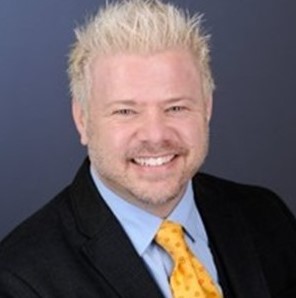
Dr George Turner
Lecturer in Social Work
Dr. George Turner’sresearch is focused on reducing health disparities by advancing sexual health equity in areas such as sexual justice, LGBTQIA2S issues, disability, and sexuality education. As a social worker, George has a demonstrated clinical expertise as a psychotherapist with over fifteen years in private practice specializing in sex therapy.
Dr. Turner is a disability and sexuality scholar who values interdisciplinary collaboration including partnering with local communities in participatory research. His research is focused on reducing health disparities by advancing sexual health equity, framed by an interest in how systems of privilege impact the intersection of race, class, ability, gender, and sexual orientation within sexual health. Through an exploration of voice, his goal is to use storytelling to illuminate the lived experiences of disenfranchised groups and expose meaning where little or none existed. Dr. Turner uses mixed methods approaches to investigate cross-cultural understandings, practice implications, and policy development regarding sexual well-being and sexual justice. As a scientist-practitioner, George’s work is organized around 3 areas of inquiry:
1) how the interplay of privilege and oppression connect to the health and wellbeing of marginalized communities: specifically, LGBTQ identified, and disabled individuals;
2) how intersectional identities are related to experiences of discrimination; and
3) experiences of sexuality and sexual health from a strengths-based, sex positive, queer affirming, medically accurate, shame-free, feminist perspective.
As a educator, Dr. Turner employees experiential learning to maximize student development. In grooming learners, George mentors helping professionals who are skilled advocates, practitioner and researchers for disenfranchised communities. Teaching must be grounded in a competency based curriculum that produces measurable outcomes and should be a mutually enriching journey that is respectful, affirming, challenging and interactive. George is a first-in-family/ first generation college student, thus he strives to honor students' unique perspective and provide a learning environment that values a student’s voice. More importantly, Dr. Turner aims to facilitate an atmosphere which recognizes divergent learning styles and provides opportunities to promote student success.
Prior to coming to WSU, Dr. Turner was an Associate Professor of Practice at the University of Kansas School of Social Welfare (2013-16), and a visiting lecturer at Washburn University (2012-13) in the social work department. George has taught both undergraduate and graduate units including: Human Sexuality, Practice, Multicultural Practice, Psychopathology, Sexual Trauma, and Psychopathology. A certified sex therapist (AASECT), Dr. Turner operated a thriving private practice in Kansas City, MO. USA for fifteen years specializing in sexual health, personal wellness, and relationship enhancement. This and his background in non-profit administration inform his teaching best practices in direct clinical services. Dr. Turner routinely provided sexuality consultations to Kansas City hospitals including: Children’s Mercy, St. Luke’s, and KU Med speaking to their psychiatry, OBGYN and urology departments on topics such as intersexuality, female sexual pain, and taking a sexual history. Additionally, George was a frequent speaker at non-profits such as PFLAG, the MS Society, KU Cancer Center, as well as graduate psychology and counselling programs.
Adjunct Members
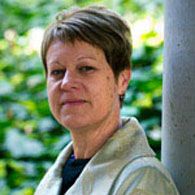
Professor Nicole Asquith
Professor of Policing and Emergency Management
Director, Tasmanian Institute of Law Enforcement Studies
For Professor Nicole Asquith, working life doesn’t get much better than riding in the front seat of a police car in a small town in regional Tasmania, watching and listening as police officers go about their daily work with the community.
The Director of the Tasmanian Institute of Law Enforcement Studies (TILES) was able to experience this close-up view of policing in the State’s Huon and Channel districts and on the West Coast, where she was researching the ways in which police and communities in small towns develop trust.
“I wanted to look at the kind of strategies they use to co-produce law and order with the community. I asked Tas Police if I could shadow the police and they said “Yes, why not”. So for six weeks of the project I observed rural police officers – sitting in the car with them, going to incidents with them, sitting in the police station when they were doing their paperwork and communicating with the community. I combined that with interviews and shadowing the community, looking at what the community does in addition to what the police does. It’s been the best research project I’ve ever done.”
Professor Asquith leads the University’s Policing and Emergency Management Program. Her interest in policing began in 2005, when she was a Research and Policy Officer with a national policing organisation examining the recruitment and retention of culturally and linguistically diverse police officers. Her current research encompasses vulnerability and policing practices, small town policing, hate speech and hate crime, and relationships between LGBTIQ people and police.
Professor Asquith began collaborating with researchers at the University of Tasmania in 2008 and continued this association through to being appointed Director of TILES in August 2020. The relationship forged with Tasmania Police over many years is a highlight of this work.
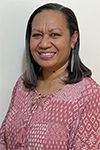
Litea Meo-Sewabu
Adjunct Fellow, School of Social Sciences
Litea's teaching and research covers a broad range of intersecting fields ranging from Social Work and Social Policy, Public Health, Indigenous Health and Wellbeing, Indigenous research and Gender & Development. She is the former Social Work Discipline Lead for at the University of the South Pacific, Fiji. She has also worked across the Pacific including the Pacific diaspora in Aoteroa, New Zealand. Her work has also included curriculum development specifically the inclusion of Indigenous and Pacific content in the Social Work program.
She was awarded the 'Research Excellence Award in 2020 at the University of the South Pacific. Some of her recent research work includes Violence against Children in Fiji, Indigenous wellbeing & Research, Indigenous entrepreneurship on customary land, Climate Change, Mental Health & Wellbeing in Pacific Islands Frontier communities and a Water for Women project under the RISE -(Revitalising Informal Settlements and Environment); a tri-university project with Fiji and Indonesia as pilot sites.
Mobile options:

